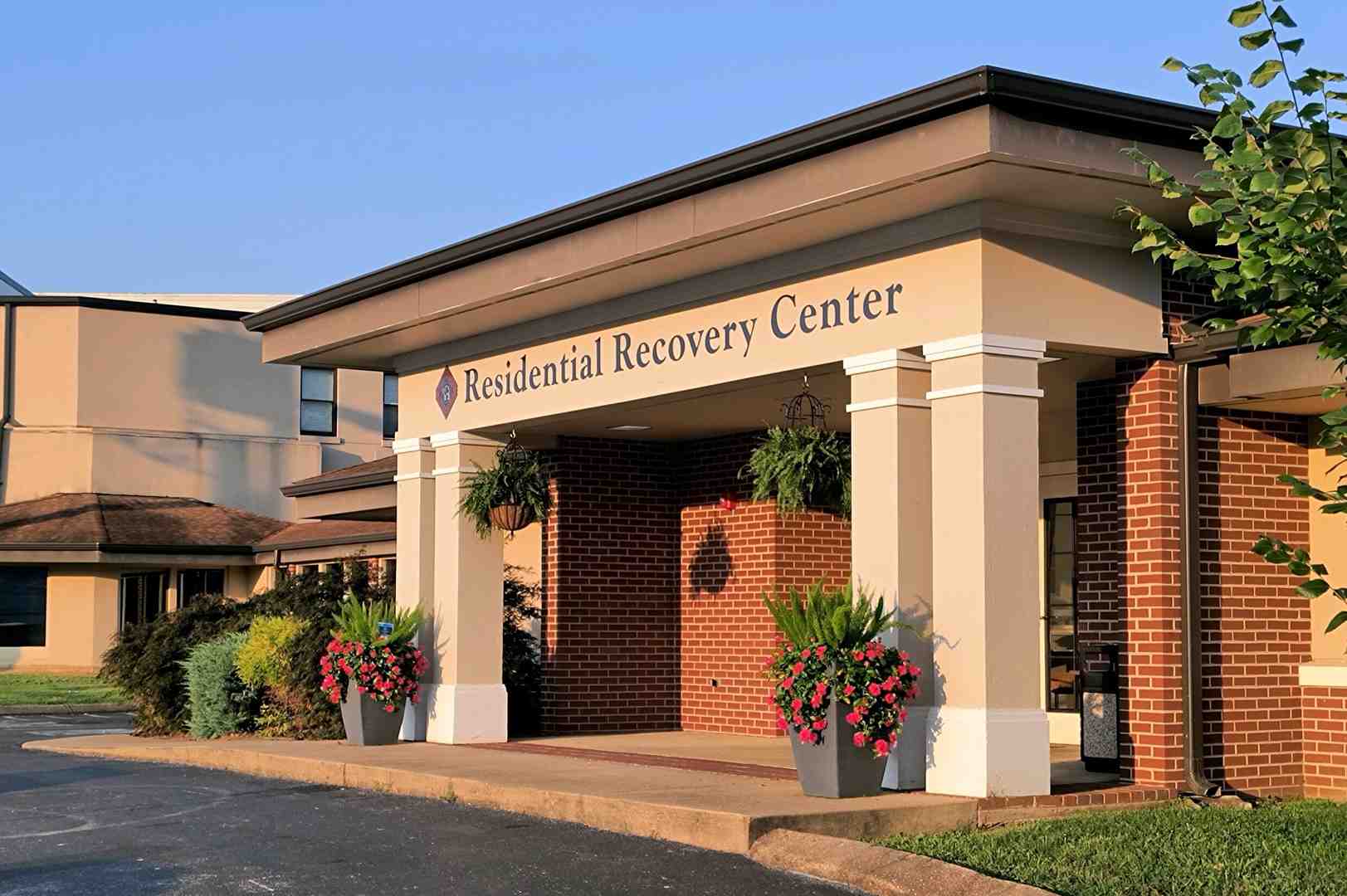
Introduction
The effects of drug addiction can be far-reaching, impacting not only the individual but also their unborn child. Babies born to mothers who use drugs during pregnancy may face a variety of health complications, some of which can be life-threatening. This article explores what happens when a baby is born addicted to drugs, detailing the effects on the baby, the potential risks involved, and how these situations are handled in medical settings. Understanding the consequences of drug use during pregnancy is essential for preventing harm to both mother and child.
What Does It Mean for a Baby to Be Born Addicted to Drugs?
Definition of Drug-Addicted Babies
When a baby is born to a mother who has used drugs during pregnancy, the baby can experience withdrawal symptoms after birth. This condition is often referred to as Neonatal Abstinence Syndrome (NAS). NAS occurs when a baby is exposed to drugs that cross the placenta during pregnancy and then suffers from withdrawal once the supply of the drug is cut off at birth.
Drugs that can lead to NAS include prescription medications, illicit drugs, and alcohol. Common substances involved in NAS are opioids (e.g., heroin, methadone), benzodiazepines, cocaine, and alcohol. Babies born to mothers who used these substances are at risk of being born with addiction, which requires immediate medical attention and care.
Call Now – Your Journey to Recovery Begins Today!

Take the first step towards a healthier life! Call now to connect with our compassionate team and start your recovery journey today. Your path to healing awaits!
Our recovery specialists are available 24/7 to provide support, and all calls are confidential and free. Reach out anytime – we’re here to help!
How Do Drugs Affect the Unborn Baby?
During pregnancy, the placenta acts as a conduit between the mother and the developing fetus, allowing nutrients and oxygen to pass through while also filtering out waste. However, harmful substances, including drugs, can also pass from the mother’s bloodstream to the baby. These drugs can interfere with the baby’s development, leading to a wide range of potential health issues.
The extent of the impact depends on several factors, such as the type of drug used, the frequency of use, the timing of exposure during pregnancy, and the mother’s overall health. In some cases, drug use during pregnancy can lead to premature birth, low birth weight, developmental delays, and long-term physical or cognitive issues.
Symptoms of Neonatal Abstinence Syndrome (NAS)
Withdrawal Symptoms in Newborns
When a baby is born addicted to drugs, it may begin to show symptoms of withdrawal shortly after birth. These symptoms can vary in severity and include:
- Excessive crying or irritability: Babies often cry more than usual and have difficulty calming down.
- Tremors or shaking: Tremors in the baby’s hands or body are common withdrawal signs.
- Feeding difficulties: Babies may have trouble sucking or swallowing and may not feed effectively.
- Poor weight gain: Due to feeding difficulties and other symptoms, babies may not gain weight as expected.
- Respiratory problems: Withdrawal can lead to faster breathing or even trouble breathing.
- Seizures: In severe cases, babies may experience seizures due to the intensity of withdrawal.
- Sweating or fever: Babies may sweat excessively or develop a fever as part of the withdrawal process.
If NAS is suspected, medical professionals will closely monitor the baby to manage symptoms and provide the necessary care.
Long-Term Effects of Drug Exposure
In addition to the immediate symptoms of NAS, babies born addicted to drugs may experience long-term effects. These can include:
- Developmental delays: Babies may reach developmental milestones later than their peers, particularly in areas like motor skills, speech, and social interaction.
- Cognitive issues: Drug exposure can affect brain development, leading to difficulties with memory, attention, and learning as the child grows.
- Behavioral problems: Children exposed to drugs in utero may face behavioral challenges, such as increased impulsivity, difficulty with emotional regulation, and hyperactivity.
The severity of these long-term effects can depend on the extent of drug use during pregnancy and the support systems in place to assist the child after birth.
Treatment and Management of NAS
Immediate Care After Birth
Once a baby is born, immediate medical care is essential for managing the symptoms of NAS. The baby may be given medications to ease withdrawal symptoms, including:
- Morphine or methadone: These medications can be used to gradually ease the withdrawal process for the baby.
- Swaddling: Wrapping the baby in blankets can help soothe tremors and provide comfort.
- Feeding support: Specialized feeding techniques, including using a feeding tube, may be necessary for babies struggling to feed.
The medical team will also monitor the baby’s temperature, heart rate, and breathing to ensure stability. The goal is to manage the symptoms as the baby’s body adjusts to life outside the womb.
Find Hope and Healing: Call Us Now!
Take the first step towards a brighter future! If you or a loved one is seeking support for substance abuse, we are here to help. Call us today and let our dedicated team guide you to the right treatment options. Your path to recovery starts now!
- Connect with an expert addiction specialist 24/7/365
- Learn about treatment costs
- Arrange fast access to a treatment program
Request a Call
OR
Make a Call
Hospital Care and Monitoring
Depending on the severity of NAS, the baby may need to stay in the hospital for several days or weeks after birth. During this time, the baby will be closely monitored for any signs of complications and to ensure that withdrawal symptoms are being managed effectively. The healthcare team will provide supportive care to help the baby recover, which may include:
- Specialized nutrition and hydration: Ensuring that the baby is receiving adequate nutrition and fluids is critical.
- Pain management: If necessary, pain management strategies may be used to ease the discomfort caused by withdrawal symptoms.
- Monitoring for seizures: If the baby experiences seizures, they will be treated immediately with medications to prevent further damage.
Role of the Mother in Treatment
It is important for the mother to be actively involved in the baby’s treatment and recovery process. Many hospitals offer counseling and support services for mothers who are struggling with addiction. This can include addiction treatment programs, therapy, and support groups to help the mother manage her substance use and avoid future drug use during subsequent pregnancies.
Prevention of Drug Addiction in Babies
The Importance of Prenatal Care
The best way to prevent a baby from being born addicted to drugs is through proper prenatal care. Regular check-ups with a healthcare provider, especially during the first trimester, are essential for monitoring the health of both the mother and the baby. If a woman is struggling with substance abuse, early intervention can make a significant difference in the outcome for the baby.
Substance Abuse Treatment Programs for Pregnant Women
For women who are pregnant and struggling with addiction, seeking treatment is vital for both their health and the baby’s well-being. Substance abuse treatment programs that cater specifically to pregnant women provide a safe environment for recovery and are designed to help women reduce or eliminate substance use during pregnancy. These programs offer medical, emotional, and psychological support to ensure the best possible outcome for both mother and child.
Who is at Risk of Having a Baby Born Addicted to Drugs?
Factors That Increase the Risk
There are several factors that increase the likelihood of a baby being born addicted to drugs, including:
- Substance use during pregnancy: Mothers who use illicit drugs, alcohol, or misuse prescription medications are at risk.
- Lack of prenatal care: Women who do not receive regular prenatal care may not be aware of the potential dangers of drug use during pregnancy.
- Socioeconomic factors: Women in lower socioeconomic groups or those with limited access to healthcare may be more likely to engage in substance use during pregnancy.
Importance of Early Intervention
Early intervention is crucial in reducing the risks associated with drug use during pregnancy. Encouraging women to seek help for substance abuse and providing education about the effects of drug use on pregnancy can help prevent these harmful outcomes.
Conclusion
In conclusion, babies born addicted to drugs face a range of immediate and long-term health challenges that require specialized care and attention. Neonatal Abstinence Syndrome (NAS) is a serious condition that can cause withdrawal symptoms and developmental delays in babies exposed to drugs in utero. With proper medical treatment, supportive care, and a focus on prevention, these risks can be minimized.
It is crucial that pregnant women receive regular prenatal care and access to substance abuse treatment programs to ensure the best possible outcomes for both mother and baby. If you or someone you know is struggling with substance use during pregnancy, seeking help early can make a significant difference in the health of both mother and child.
Call Now – Your Journey to Recovery Begins Today!

Take the first step towards a healthier life! Call now to connect with our compassionate team and start your recovery journey today. Your path to healing awaits!
Our recovery specialists are available 24/7 to provide support, and all calls are confidential and free. Reach out anytime – we’re here to help!
Need Help with Addiction?
If you or someone you love is struggling with substance abuse, call Addiction Helpline America at (844) 561-0606 for confidential support and treatment options.
What is Neonatal Abstinence Syndrome (NAS)?
How do drugs affect a baby during pregnancy?
Can a baby be born addicted to prescription medications?
What treatment options are available for babies born addicted to drugs?
Can drug use during pregnancy be prevented?
Babies Born Addicted to Drugs: Symptoms Explained
When a baby is born drug, exposed, the consequences can be very fast to show up or even develop over the first days of life. This situation, which is generally called neonatal withdrawal, is a result of substances going from a pregnant parent to the baby before birth. So, the infants body after delivery has to work without those substances and that can be the reason of the symptoms turning up.
Knowing such signs helps the people taking care of the patient to interact with him/her adequately at the stage of early recognition.
How Drug Exposure Affects Newborns
During the pregnancy, drugs are transferred to the fetus via the placenta which negatively influences the development of the fetal nervous system. After birth, the infant’s body becomes incapable of managing on its own without the drug it has been dependent on, hence the infant experiences physical and behavioral symptoms of varying degrees of intensity.
Symptoms depend on factors such as:
- The type of substance used
- Frequency and duration of exposure
- Timing during pregnancy
- The infant’s overall health
The infants general health Withdrawal symptoms in infants vary.
Our helpline is 100%
free & confidential
If you or someone you care about is struggling with drug or alcohol addiction, we can help you explore your recovery options. Don’t face this challenge alone—seek support from us.
Programs
Resources
Will my insurance
cover addiction
treatment?
We're ready to help
Find the best
drug or alcohol treatment
center
Are you or a loved one struggling with addiction? Call today to speak to a treatment expert.













